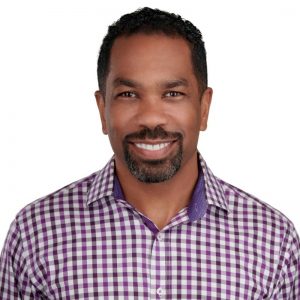Here’s what I believe:
Founders must resist the urge to think about getting rich quick.
Sure, you’ve got a great idea. You’ve got a great product/service that you want to put out there quickly with a first-mover advantage. But while founders have been encouraged to be more agile and “Fail Fast, Fail Often,” exuberance and haste fueled solely by passion can be a founder’s ultimate undoing.
In my first post on StartupHeat, we identified how most businesses crash and burn, which led me to study why they fail. One of the biggest reasons for failure is that the founders of most start-ups allow irrational enthusiasm and misguided optimism to create multi-dimensional blind spots.
We all have blind spots. That’s why we need experienced mentors, advisors, and team members. Blind spots without built-in checks and balances, however, are the death knell of most startups.
Of course, you can hire mentors and advisors. But for self-management, founders must balance the irrationality of emotional excitement with the rationality of mindfulness to manage their blind spots.
In PART 2 of StartupHeat’s Founders Focus on Mindfulness, I showed you how applying the three key steps toward mindfulness – focus, awareness, and reality acceptance – will help you make better day-to-day business decisions. Now, I’ll explain how mindfulness will help you create the foundations for startup success by channeling your entrepreneurial exuberance in the right direction.
Pillars of Success
A mindful founder acknowledges the irrationality of their emotions and then directs that emotional energy into a focus on more rational business activities. Specifically, mindful founders focus on these three pillars of success:
- Fall in love with the problem, i.e., customer needs
- Develop domain expertise in functional vertical areas; and
- Have a greater purpose by identifying meaningful global issue(s) to solve.
Fall in Love the Right Way
Before founders make important decisions, they should ask themselves a few questions:
- Am I focused on the problem?
- Are my emotions in check or are they clouding my judgment?
- Am I considering the right signals, or am I caught up in noise?
Mindfulness allows you to recognize your emotions, control them, and use them as additional, relevant data to help make better decisions.
I often mention how mindful founders need to “fall in love” with the problem rather than falling in love with their solution or product. Love is a powerful emotion, of course, and if you’re going to unleash it in a business context, founders must temper irrational, overwhelming excitement and optimism about their own products and instead focus that energy on the problem:
Think like a buyer and give them what they actually need.
In my interview with Tim Skaggs, executive coach and lead facilitator for the American Leadership Forum, he said that in addition to not losing focus on the problem, founders must also be wary of not falling in love with themselves. Because when we do that, we lose sight of both the solution and the problem. Our own ego needs will override our focus on the problem, our judgment will become impaired, and we’ll be less likely to make a quality business decision.
Develop Domain Expertise
In The e-Myth Revisited, Michael Gerber identified three key roles entrepreneurs must play when starting a business:
- The entrepreneur or visionary
- The manager or person to oversee the functional areas of the business, and
- The technician or value creator.
Most founders start out doing all three. And the most successful entrepreneurs historically were best at the “technical” side at the outset. The word “technical” here can mean anything from literal technological expertise to specific industry domain expertise.
The problem arises when a founder doesn’t have sufficient experience in any of the three roles. Unfortunately, in a tech world dominated by low barriers to entry, this e-myth concept is completely missed by a lot of startup entrepreneurs. They come up with an idea they love, talk to a few friends, and then go for it.
But they are behaving irrationally.
As a founder, if you don’t have some level of knowledge, expertise, or experience in the industry or technical area of the problem you’re trying to solve, you could be setting yourself up for failure. For example, if you’re looking to solve problems in the healthcare industry, you should probably either have some healthcare experience or find a co-founder who does!
Find Your “Why”
The successful entrepreneur must get their business aligned with their occu-passion, also known as their “reason why.” Is this just a job or is it a calling for you? It’s vital that your own vision, mission, and values align with the opportunity you pursue or the problem you’re trying to solve.
Research shows that most successful companies are mission driven. And the more founders align the problem they’re trying to solve or the opportunity they’re trying to pursue with things they are passionate about, that they are good at, and that they would do for free, the better their startups perform.
So, making your entrepreneurial pursuit your occu-passion can be the key to making your business thrive. Customers, employees, and investors will be attracted to you, what you believe, and your enthusiasm for your Why.
In the early stages of a company, it’s important that your mission inspires your team. It’s also important that the team will go beyond the call of duty and that they are committed to more than just the compensation – that’s called discretionary effort.
The same goes for early adopter customers. You want them engaged emotionally in solving the problem. This discretionary effort and early building of your culture are all about knowing, communicating, and executing toward your Why!
Working with thousands of young entrepreneurs, and having been one myself, it’s easy for me to understand how their lives and careers blend together. In a sense, their personal lives are their businesses.
The Founder’s Bottom Line
When providing a value proposition to any customer, a mindful founder will be able to articulate that they fully understand the problem, demonstrate the technical domain expertise they can bring to bear, and show they have a passion for and a Why that aligns with solving that problem.
Next time on StartupHeat, we’ll introduce the 3 key stages of The Mindful Startup Formula. Until then, founders, stay curious, focus on the signal, and make mindful decisions on your journey to success!



